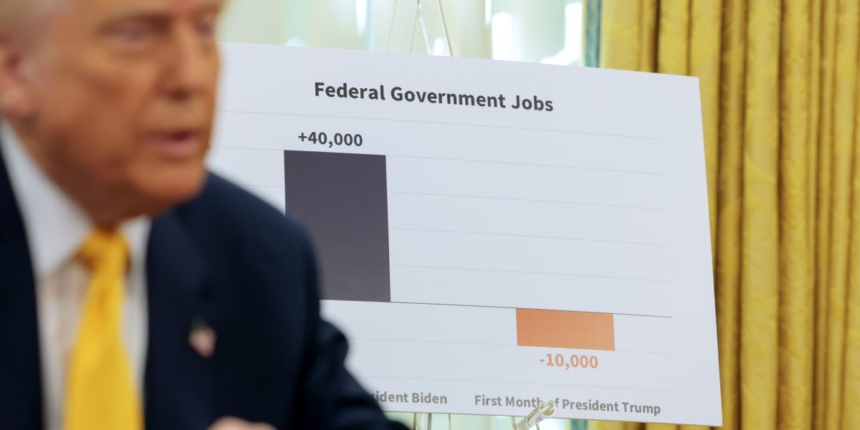Decades of declining quality and accuracy in federal statistics, exacerbated by President Donald Trump’s cuts, have economists questioning data that inform everything from the Federal Reserve’s decisions to Social Security payments for more than 70 million Americans.
The BLS collects data that inform its inflation report through field operators called enumerators, who go into brick-and-mortar stores to gather data on products and services. If the enumerators can’t find a specific product in a certain city, they record the price of a comparable product for a next-best estimate. Having fewer workers in the field means the BLS has to rely more than usual on its next-best estimates.
The Labor Department, BLS’s parent agency, did not respond to a request for comment.
Erica Groshen, a former BLS commissioner and current senior economics advisor at the Cornell University School of Industrial and Labor Relations, said Trump’s most recent cuts add to decades of the BLS struggling to publish accurate and detailed data despite budget cuts and political pressure. The agency’s budget is down by about 20% in real terms since 2009, she said.
“You have an institution that was already struggling a bit, and then you have this collateral damage on top of it,” Groshen told Fortune.
While the agency always strives to maintain accurate top-line numbers, such as the overall CPI number, more granular data could be drastically scaled back, to the detriment of those who rely on it. Inflation and employment data the BLS publishes affect everything from Social Security payments to business decisions to the availability of unemployment insurance benefits, she said.
“Social Security benefits are indexed to the current CPI,” Groshen told Fortune. “If the BLS makes a tenth-of-a-percentage-point mistake in the CPI, then Social Security beneficiaries will be overpaid or underpaid by a billion dollars.”
“Less understanding of U.S. inflation increases the chances of the Federal Reserve making a policy error (especially with the mantra of ‘data dependency’),” wrote Donovan.
Overall, Groshen said the BLS will likely continue to reduce the scope of its operations in order to maintain the quality of headline numbers such as CPI, yet this comes with a cost. The granularity of some statistics as well as programs that are useful for understanding causes and consequences of changes may be sacrificed.
“This is a choice that we as a country are making to fly blind, or to fly more blindly,” she said. “We could have a clearer windshield, but we are allowing it to be clouded.”









